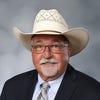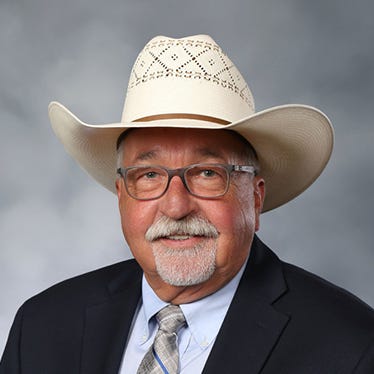August 7, 2019

One of the things I admired most about my father was his unmatched work ethic, and it never wavered in all of his 84 years, until the ravages of cancer confined him to his bed for the last couple of months of his life.
I don’t ever remember Dad carrying or wearing a watch at any time before I left home to attend college. His method for determining the day’s agenda was quite simple: When the sun rises, one should be at work (notice I didn’t say “get up for work”), and you worked until it was too dark to see what you were doing.
We took one break for lunch, and you determined lunchtime by the position of the sun directly overhead. My mother would get so upset when he would be late for lunch that she started hanging a towel on the front porch at about 11:30 a.m. Our house was on a hill and most of our farm was situated in the creek bottom below the house, so the towel should have been visible most of the time, but if Dad was really involved in his work, he would still forget to look.
On every day but Sunday, Dad was always busy with something, regardless of the weather. It didn’t get too hot to work, but on extremely cold days, you could find him in the shop making or repairing something. His philosophy was that if it was daylight, you needed to be doing something productive.
Apparently, I inherited half of that work ethic gene from my father, because I am able to sit idly for extended periods of time, but I do feel guilty when I do.
I was reminded of all this a few weeks ago, while my wife and I were on vacation. We don’t take trips too often, and we’ve only traveled out of the United States once during our 36 years of marriage, but about a year ago, we started planning a once-in-a-lifetime trip to … Iceland.
The trip was mostly wonderful, and the people were very friendly. The scenery was spectacular in certain places, but my favorite part was the day we rented a car and drove out into the countryside. I was enthralled with watching the farmers making hay and observing the different kinds of livestock production along the way. The old saying “You can take a farm boy out of the country, but …” is still true.
The only bad part of the trip was the inability for both Judy and me to get anything close to a normal night of sleep because it never got dark! We even asked one of the native Icelanders when the sun sets. His reply was, “Well, in the summer, the sun never really sets, but rather, it relaxes for a couple of hours.”
I believed him, because all the times we were up at midnight, 1 a.m., 2 a.m. and 3 a.m., there was plenty of light to do anything you might want to do — except sleep.
On our flight home, I contemplated what my father might have thought of Iceland, were he still alive and able to visit the country. I concluded that had he been born in Iceland and made a living farming in that formidable terrain (and I have no doubt that he could have done so), he would most assuredly have died long before the age of 84. With so many hours of daylight to be productive, he would have worked himself to death.
Crownover lives in Missouri.
About the Author(s)
You May Also Like






